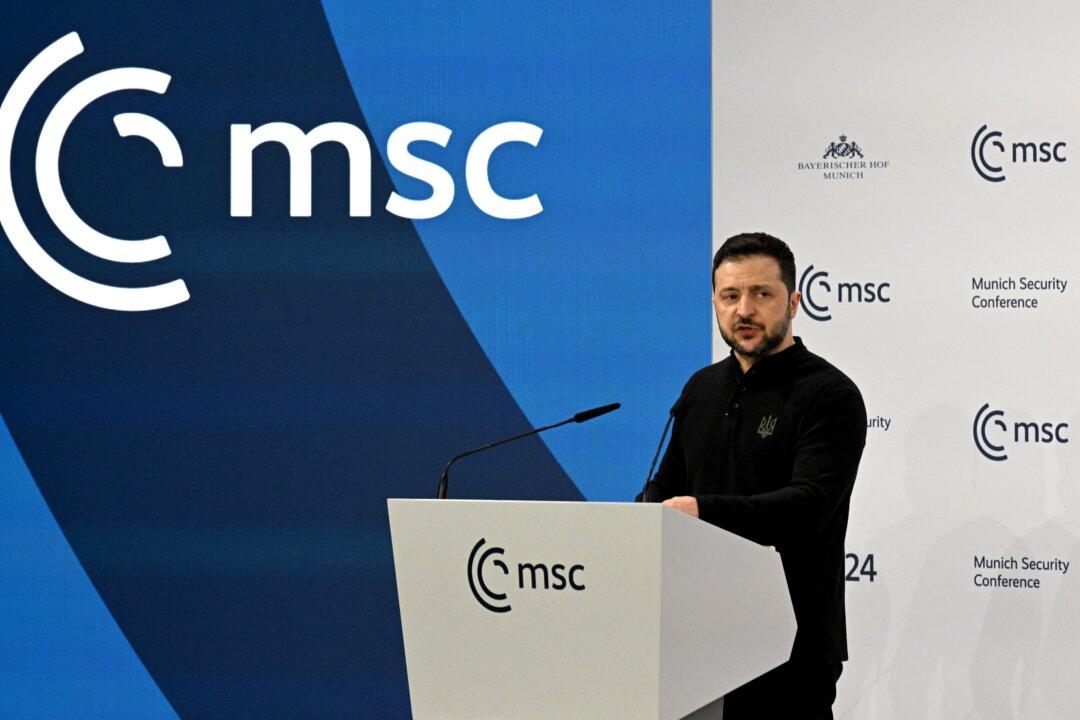China’s communist regime is engaged in the persistent theft of American intellectual property and technologies, according to a leading U.S. diplomat.
The regime is stealing critical technologies like artificial intelligence and quantum computing, which will have crucial military importance in the coming years, said U.S. Ambassador to China Nicholas Burns.
“[Technology] is in many ways the heart of the competition,” Burns said at a June 7 meeting of the Global Leadership Coalition.
“All of those technologies are going to be militarized.”
Burns said that the Chinese Communist Party (CCP), which rules China as a single-party state, is engaged in the “consistent and persistent theft of intellectual property” to accelerate “forced technology transfer” from the United States.
That malign influence, he said, was making it increasingly difficult for the United States and the CCP to peacefully compete, and would have ramifications for U.S. security in the region both in the near and long terms.
“We have a very competitive, difficult, often contentious relationship,” Burns said.
“We’re certainly competing for military power and security in the Indo-Pacific.”
Burns connected the issue of technology theft to a larger struggle between the United States and the CCP to direct the evolution of the international system. The United States is championing a rules-based liberal order and the CCP is pursuing an authoritarian system that favors totalitarian regimes like its own, he said.
To that end, he said that the struggle to maintain or reshape the international order would have cascading consequences on all areas of national power.
“We’re going to have to compete with China for a long time to protect American interests and American values,” Burns said.
US Must Mix ‘Sticks and Carrots’
Rep. Mike Gallagher (R-Wis.), who chairs the Select Committee on the CCP, also spoke at the event.To counter the CCP regime’s malign influence, he said, the United States must meld its strategies for military, economic, and ideological competition together. By bringing the Departments of Commerce, Defense, and State more closely in line with one another in the nation’s grand strategy, the nation will be better able to compete with China, he said.
Still, there remains the issue of whether American leadership is up to the task of competing at all.
“The first and most obvious point is that if you want to win the competition you actually have to show up,” Gallagher said.
“There are certain areas where we’re not even competing, because competing implies there are two sides that show up and are engaged in some sort of match. We haven’t even shown up in some areas.”
Gallagher said that the Biden administration seemed overly interested in trying to pursue the type of economic engagement with the CCP that led to the current crisis in Sino-American relations. To get out of that rut, he said, the administration would need to do more to connect its diplomatic and military power in the Indo-Pacific to actively defend its interests when engagement fails and get the “right mix of sticks and carrots.”
“I do think that the Biden administration is trying to resurrect economic engagement and diplomatic detente with China as a core pillar of our grand strategy,” Gallagher said. “I’m skeptical that this will work for the same reason it didn’t work for the last two decades.”
“I just don’t think the CCP is interested in cooperation or engagement. They want to expand their power and ideology at our expense.”
To do that, he said, the United States would need to invest in overseas development and get a seat at the table of many multilateral institutions in the region that the United States had not adequately engaged with.
Without that engagement, he added, the CCP would assuredly whittle away U.S. influence in the region to nothingness.
Asian Nations Wary of CCP’s Bellicosity
The CCP’s campaigns of technology theft and repression do give the United States some advantages, however, according to National Security Council Coordinator for Indo-Pacific Affairs Kurt Campbell.Because of the regime’s heavy-handed influence abroad, countering malign influence in the Indo-Pacific had become a “Common purpose” for international bodies like the G7, Campbell said during a June 7 talk at the Center for Strategic and International Studies think tank.
Likewise, he said, regional powers were adapting to hostility from the CCP as well. Asian governments, he said, frequently discussed their fears of the CCP with U.S. officials in private.
“What we have seen increasingly are activities [by the CCP] in Europe but also in the Indo-Pacific that are worrying, provocative, and create larger anxieties,” Campbell said.
“In private consultation, almost every country in the Indo-Pacific is concerned by activities that we’ve seen of late. Whether its border exercises around Iran, activities in the East China Sea, the South China Sea, [or] the Taiwan Strait.”
To that end, Campbell said that the Biden administration was working closely with allies and partners to encourage cooperation with communist China where possible, and to “Push back against provocations or steps that are designed to unsettle the status quo or to challenge the operating system that has been established.”
Such efforts are “not meant as indicators of containment,” Campbell said.
Rather, they are designed to “stabilize our own operating system that has been so positive and provided such strength and security for decades.”





